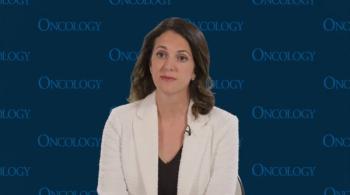
At first relapse, novel therapies are offered to patients with multiple myeloma at The Ohio State University Comprehensive Cancer Center-The James.

Your AI-Trained Oncology Knowledge Connection!


At first relapse, novel therapies are offered to patients with multiple myeloma at The Ohio State University Comprehensive Cancer Center-The James.

Ashley E. Rosko, MD, highlights potential changes on the horizon to the standard of care in multiple myeloma therapy, and discussed the personalization of treatment based on transplant eligibility.
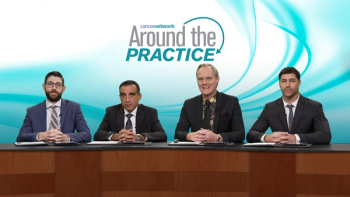
An overview of triplet and quadruplet induction regimens used for the treatment of patients with transplant-eligible newly diagnosed multiple myeloma.
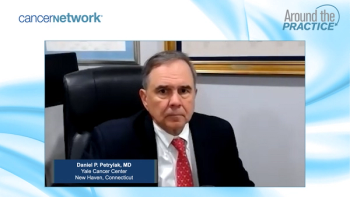
Key opinion leaders in the field of prostate cancer close out their discussion by sharing excitement for future evolutions in the setting of hormone-sensitive disease management.

A panel of experts present a profile of a patient with newly diagnosed multiple myeloma (NDMM) and offer their initial thoughts.
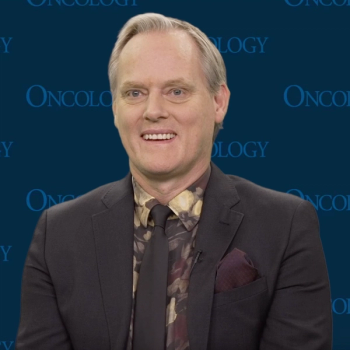
C. Ola Landgren, MD, PhD, illustrated how minimal residual disease tracking may allow greater treatment personalization in the future.
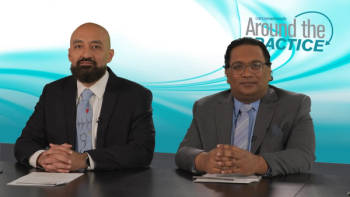
Naresh Bumma, MD, reviews data from the final analysis of the GRIFFIN trial investigating a quadruplet induction therapy regimen in newly-diagnosed multiple myeloma and discusses how patients are evaluated for transplant.
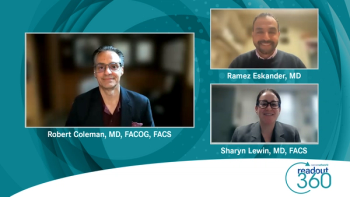
Experts explain what they are looking forward to in the future of treatment for patients with ER/PR+ and P53 wild-type or mutated advanced/recurrent endometrial cancer.
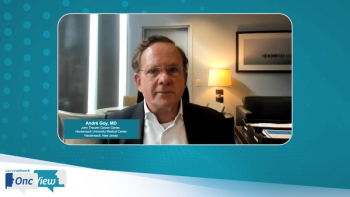
Andre H. Goy, MD, and Andrew Ip, MD, offer closing remarks on unmet needs in the treatment of diffuse large B-cell lymphoma.

The panel discusses their opinions on the use of immunotherapy in different populations of women with advanced/recurrent endometrial cancer.
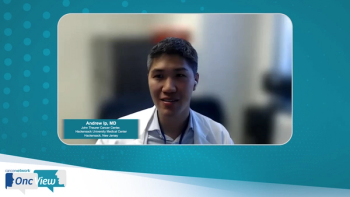
Experts on diffuse large B-cell lymphoma discuss the factors that inform their treatment choices in the second line.
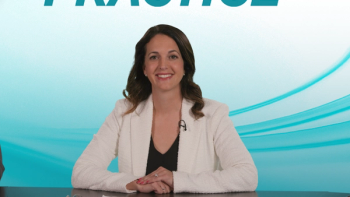
Ashley Rosko, MD, presents the case of a 57-year-old male with newly-diagnosed multiple myeloma for discussion.

C. Ola Landgren, MD, PhD, speaks about transplant eligibility, as well as new therapies and minimal residual disease negativity, in the multiple myeloma space.
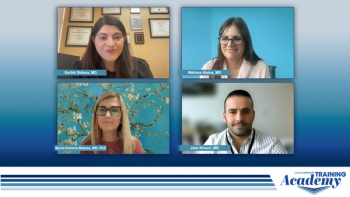
The panel discusses their potential treatment approaches for the presented patient case and how they select patients with relapsed/refractory MM for teclistamab and optimally sequence therapies.
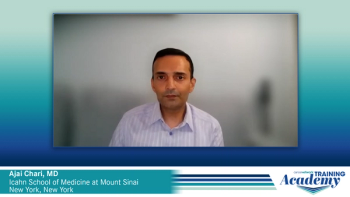
Experts discuss how they educate infusion nurses and other colleagues treating patients with multiple myeloma on the infection risks of BCMA-targeting bispecific antibodies.
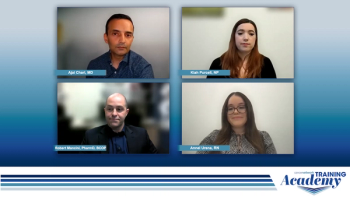
Centering discussion on the third patient case of multiple myeloma, key opinion leaders consider the development of CRS on non-BCMA targeted bispecific antibody therapy.
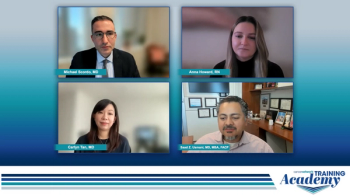
A comprehensive discussion on managing neurotoxicity associated with bispecific antibodies in multiple myeloma.

A panel of experts on multiple myeloma offer insights on the case of a 57-year-old with relapsed/refractory MM treated with an FcRH5 bispecific antibody who develops peripheral neuropathy.
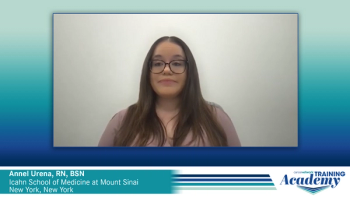
Registered Nurse Annel Urena presents the case of a 79-year-old female with IgG Kappa multiple myeloma and five previous lines of therapy.

A brief review of available management strategies used in practice when patients with multiple myeloma develop immune effector cell-associated neurotoxicity syndrome.

Jack Khouri, MD, presents the case of a 68-year-old patient with relapsed/refractory multiple myeloma and extramedullary disease treated with teclistamab.
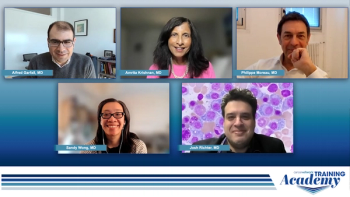
Before closing out their program on bispecifics in multiple myeloma, expert oncologists consider the value of these agents in more challenging patient populations.
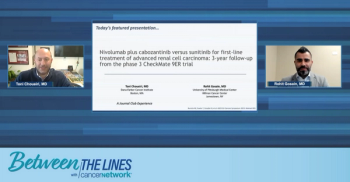
Toni Choueiri, MD, and Rohit Gosain, MD summarize the implications of the CheckMate 9ER 3-year follow-up data and highlight remaining questions and unmet needs in the RCC landscape.

A brief overview of post-hoc data from the CheckMate 9ER trial examining baseline characteristics and time to subsequent therapy in patients who received at least two years of nivolumab treatment, followed by study conclusions.
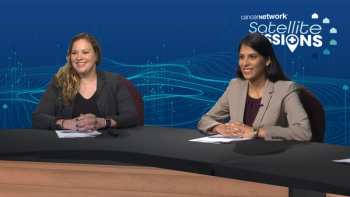
Centering discussion on transplant ineligible multiple myeloma, expert panelists review mainstay treatment regimens and strategies in the first-line setting.
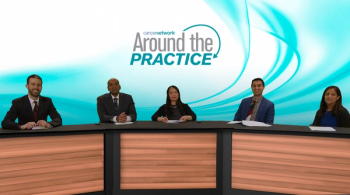
A panel of experts discuss the role of ctDNA and their practices for retesting HER2 expression to guide treatment for colorectal cancer.
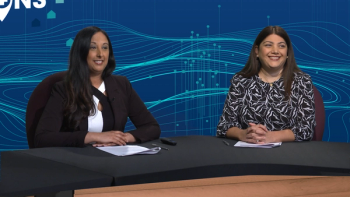
Shared insight on the respective value of consolidation therapy and collaborative tumor boards when managing patients with transplant-eligible multiple myeloma.

A comprehensive overview of trastuzumab deruxtecan (T-DXd) as a treatment for patients with HER2+ metastatic colorectal cancer.

C. Ola Landgren, MD, PhD, discusses the benefits obtained when patients have access to a full team of diverse caregivers rather than just a single physician.

C. Ola Landgren, MD, PhD, reviewed the plethora of emerging treatment options in multiple myeloma, and how unmet needs in the space can be overcome.